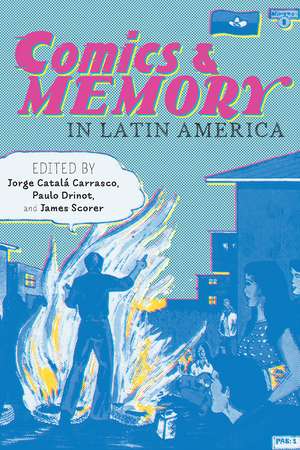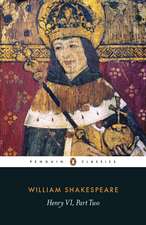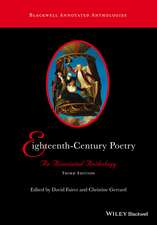Comics and Memory in Latin America: Pitt Illuminations
Editat de Jorge Catala Carrasco, Paulo Drinot, James Scoreren Limba Engleză Paperback – 14 apr 2017
Latin American comics and graphic novels have a unique history of addressing controversial political, cultural, and social issues. This volume presents new perspectives on how comics on and from Latin America both view and express memory formation on major historical events and processes. The contributors, from a variety of disciplines including literary theory, cultural studies, and history, explore topics including national identity construction, narratives of resistance to colonialism and imperialism, the construction of revolutionary traditions, and the legacies of authoritarianism and political violence. The chapters offer a background history of comics and graphic novels in the region, and survey a range of countries and artists such as Joaquín Salvador Lavado (a.k.a Quino), Héctor G. Oesterheld, and Juan Acevedo. They also highlight the unique ability of this art and literary form to succinctly render memory. In sum, this volume offers in-depth analysis of an understudied, yet key literary genre in Latin American memory studies and documents the essential role of comics during the transition from dictatorship to democracy.
Din seria Pitt Illuminations
-
 Preț: 301.57 lei
Preț: 301.57 lei -
 Preț: 338.21 lei
Preț: 338.21 lei -
 Preț: 388.79 lei
Preț: 388.79 lei -
 Preț: 386.88 lei
Preț: 386.88 lei -
 Preț: 389.76 lei
Preț: 389.76 lei -
 Preț: 433.53 lei
Preț: 433.53 lei -
 Preț: 349.43 lei
Preț: 349.43 lei -
 Preț: 347.87 lei
Preț: 347.87 lei -
 Preț: 462.86 lei
Preț: 462.86 lei -
 Preț: 428.75 lei
Preț: 428.75 lei -
 Preț: 390.71 lei
Preț: 390.71 lei -
 Preț: 426.79 lei
Preț: 426.79 lei -
 Preț: 310.95 lei
Preț: 310.95 lei -
 Preț: 243.01 lei
Preț: 243.01 lei -
 Preț: 384.00 lei
Preț: 384.00 lei -
 Preț: 322.65 lei
Preț: 322.65 lei -
 Preț: 394.94 lei
Preț: 394.94 lei -
 Preț: 391.67 lei
Preț: 391.67 lei -
 Preț: 459.98 lei
Preț: 459.98 lei -
 Preț: 428.36 lei
Preț: 428.36 lei -
 Preț: 390.71 lei
Preț: 390.71 lei -
 Preț: 356.55 lei
Preț: 356.55 lei -
 Preț: 386.88 lei
Preț: 386.88 lei -
 Preț: 386.88 lei
Preț: 386.88 lei -
 Preț: 396.85 lei
Preț: 396.85 lei -
 Preț: 358.46 lei
Preț: 358.46 lei -
 Preț: 290.58 lei
Preț: 290.58 lei -
 Preț: 388.79 lei
Preț: 388.79 lei -
 Preț: 426.63 lei
Preț: 426.63 lei -
 Preț: 423.14 lei
Preț: 423.14 lei -
 Preț: 389.55 lei
Preț: 389.55 lei -
 Preț: 385.91 lei
Preț: 385.91 lei -
 Preț: 384.00 lei
Preț: 384.00 lei -
 Preț: 385.69 lei
Preț: 385.69 lei -
 Preț: 425.86 lei
Preț: 425.86 lei -
 Preț: 386.88 lei
Preț: 386.88 lei -
 Preț: 423.91 lei
Preț: 423.91 lei -
 Preț: 422.76 lei
Preț: 422.76 lei -
 Preț: 427.55 lei
Preț: 427.55 lei -
 Preț: 386.88 lei
Preț: 386.88 lei -
 Preț: 386.88 lei
Preț: 386.88 lei -
 Preț: 390.71 lei
Preț: 390.71 lei -
 Preț: 428.75 lei
Preț: 428.75 lei -
 Preț: 438.33 lei
Preț: 438.33 lei -
 Preț: 386.88 lei
Preț: 386.88 lei -
 Preț: 350.79 lei
Preț: 350.79 lei -
 Preț: 384.92 lei
Preț: 384.92 lei -
 Preț: 460.97 lei
Preț: 460.97 lei -
 Preț: 385.91 lei
Preț: 385.91 lei
Preț: 386.88 lei
Nou
Puncte Express: 580
Preț estimativ în valută:
74.03€ • 77.49$ • 61.62£
74.03€ • 77.49$ • 61.62£
Carte tipărită la comandă
Livrare economică 31 martie-14 aprilie
Preluare comenzi: 021 569.72.76
Specificații
ISBN-13: 9780822964247
ISBN-10: 0822964244
Pagini: 240
Ilustrații: 40 b&w Illustrations
Dimensiuni: 152 x 229 x 23 mm
Greutate: 0.39 kg
Ediția:1
Editura: University of Pittsburgh Press
Colecția University of Pittsburgh Press
Seria Pitt Illuminations
ISBN-10: 0822964244
Pagini: 240
Ilustrații: 40 b&w Illustrations
Dimensiuni: 152 x 229 x 23 mm
Greutate: 0.39 kg
Ediția:1
Editura: University of Pittsburgh Press
Colecția University of Pittsburgh Press
Seria Pitt Illuminations
Recenzii
"The book is masterful and accessible for comics enthusiasts and humanities scholars alike." —NACLA Report on the Americas
“This volume raises the most important questions about Latin America’s recent past from the unusual angle of comic books and cartooning. The politics of memory, the lingering influence of the Cold War, the awful and ambiguous effects of neoliberalism: historians’ arguments on these crucial topics will be complicated and enriched by the essays in this lovely book.” —Anne Rubenstein, York University
“This volume makes an exciting contribution to memory studies in Latin America, while responding to a growing interest in graphic fiction from the region. Its geographical scope is admirably broad, and the editors have done an excellent job of bringing together a very diverse set of discussions on the role of comics in politics and memory.” —Joanna Page, University of Cambridge
"This collection has a lot to offer, and readers will find a fascinating perspective on how different manifestations of this genre reverberate in the collective memory of Latin American societies at specific historical junctures." —Margarita Saona, University of Illinois at Chicago
“Comics & Memory in Latin America . . . pelo conjunto da obra, torna-se desde já uma referência obrigatória a todo pesquisador interessado em compreender a história recente das articulações entre arte, política e identidades culturais nas HQs latino-americanas.” —Latin American Research Review
Notă biografică
Jorge Catala Carrasco is senior lecturer in Hispanic studies at Newcastle University in the United Kingdom.
Paulo Drinot is senior lecturer in Latin American history at the Institute of the Americas, University College London.
James Scorer is a lecturer in Latin American cultural studies at the University of Manchester.
Paulo Drinot is senior lecturer in Latin American history at the Institute of the Americas, University College London.
James Scorer is a lecturer in Latin American cultural studies at the University of Manchester.
Descriere
This edited volume presents new perspectives on how comics on and from Latin America both view and express memory formation on major historical events and processes. The contributors, from a variety of disciplines including literary theory, cultural studies, and history, explore topics including national identity construction, narratives of resistance to colonialism and imperialism, the construction of revolutionary traditions, and the legacies of authoritarianism and political violence.













